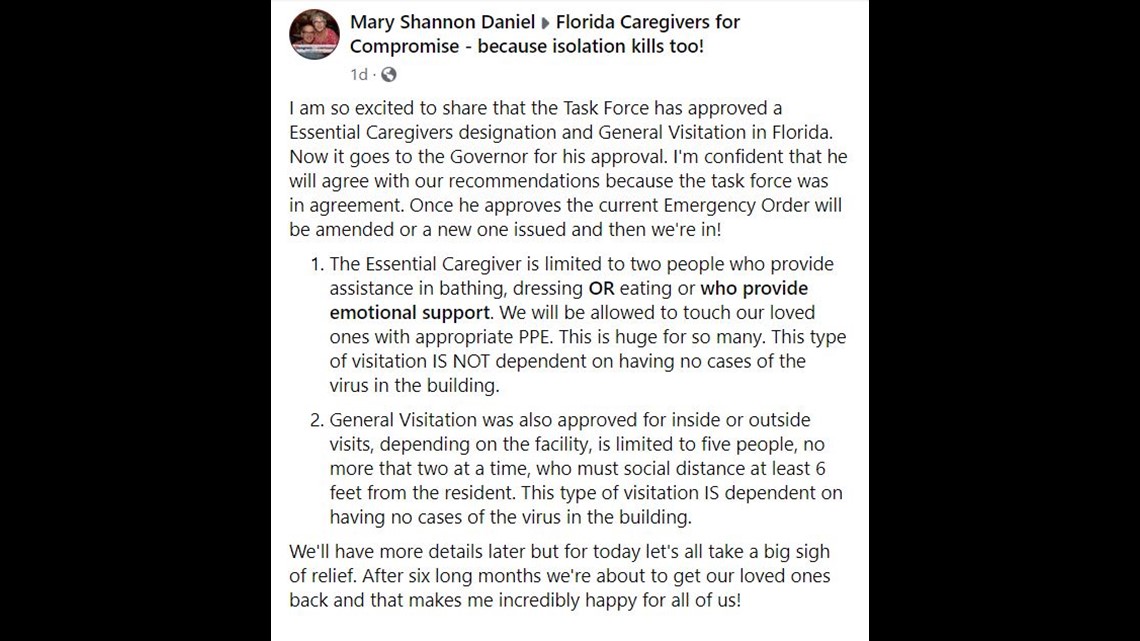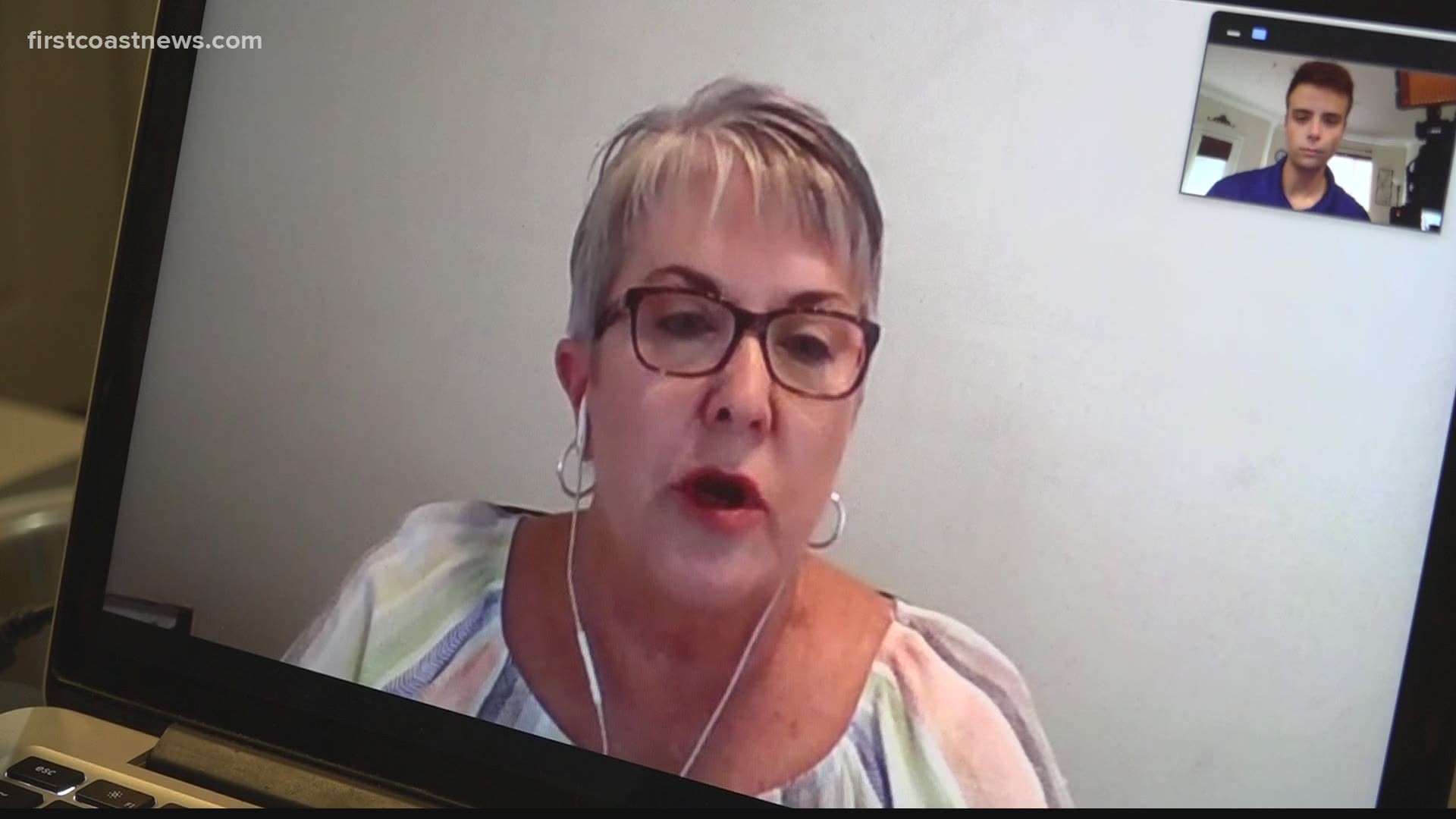FERNANDINA BEACH, Fla. — A barrier made of PVC pipe and plastic is all that stood between Deborah Conner and her mother Thursday morning, with two sets of armholes and a sign advertising a "Hugging Booth."
Standing near the barrier, Conner watched her 94-year-old mother Beatrice Wilson walk out of the Fernandina Beach assisted living facility she calls home. A staff member helped Wilson to approach one side of the barrier, while Conner stood on the other.
Conner, who donned a set of gloves running past her elbow, put her hands through the holes and held her mother.
"You can put that arm around me too," she told her mom, who took a moment to get acclimated to hugging through the plastic. "I'm not going to let you fall, not after all this time."
The last time Conner was able to hug her mother was March 11, nearly six months ago. Since the state shut down visitation at assisted living facilities in March, contact has been limited to standing outside a window or video chatting.
"As difficult as it has been not to see her, I understand that's necessary and it's the reason she's stayed safe is because we haven't been allowed in," Conner said.
The lack of physical human contact between assisted living facility residents and their loved ones, for many seniors and especially those with dementia and Alzheimer's, is detrimental.
"It's been really really hard not to be able to hug and touch her and let her know that she's safe and comforted," Conner said.
Staff at Wilson's nursing home, Family Extended Care of Amelia Island (also known as Jane Adams House), created the "Hugging Booth" to give residents a safe way to experience physical touch from their loved ones.
Conner said it was a deeply touching, emotional moment to hug her mother.
"You just never know from day to day if you're going to get to hug her again. That's the scary part," she said. "She'll be talking about it for a few days."
But for caregivers and family like Conner, things could get easier within days.
In July, Gov. Ron DeSantis created a task force dedicated to finding a way to allow visitation in nursing homes statewide. The task force has submitted a set of recommendations to DeSantis which, if approved, would allow for general visitation in assisted living facilities.
"I want us to be extremely careful, but I also know that after six months we're talking about real damage being done," said Mary Daniel, one of the members of the task force who was the subject of a First Coast News story that went viral. "We're talking about people dying alone."
Daniel, who caught up with On Your Side Thursday, said she expects Gov. DeSantis to sign off on the recommendations within days.
Visitation would be allowed following certain criteria:
- Family members classified as "essential caregivers" would be able to visit their loved ones without social distancing mandated
- General visitation for family not classified as "essential caregivers" would be allowed at facilities with no new staff or resident Coronavirus cases in 14 days. Social distancing would be mandatory
- Only two visitors allowed at any time
- Visiting times and duration of visit would vary by facility
While serving on the task force, Daniel was the only voice not speaking in an official capacity, representing families across the state and the nearly 10,000 people who joined her Facebook group: Caregivers for Compromise.
"They allowed me a seat at this table, and I'm extremely grateful for that," she said. "I felt that my voice was listened to, I felt that we did compromise, they did compromise for me."
Daniel, whose husband Steve has Alzheimer's and lives in a Jacksonville nursing home, took a job as a dishwasher in order to visit him twice a week.
Since she's been allowed back in the facility, Daniel said her husband's condition has improved greatly.
"His anxiety level is down, he's much more relaxed, he is a better resident because he feels good. He's happy," she said. "He's at peace."
Daniel said she is ready to submit her two-week notice to leave her dishwashing job so she can begin regular visits again once the state approves the visitation plan.
"We were able to fight for what we believed in as caregivers, as family members, and because of that we are going to be able to give them a hug in a matter of days."



